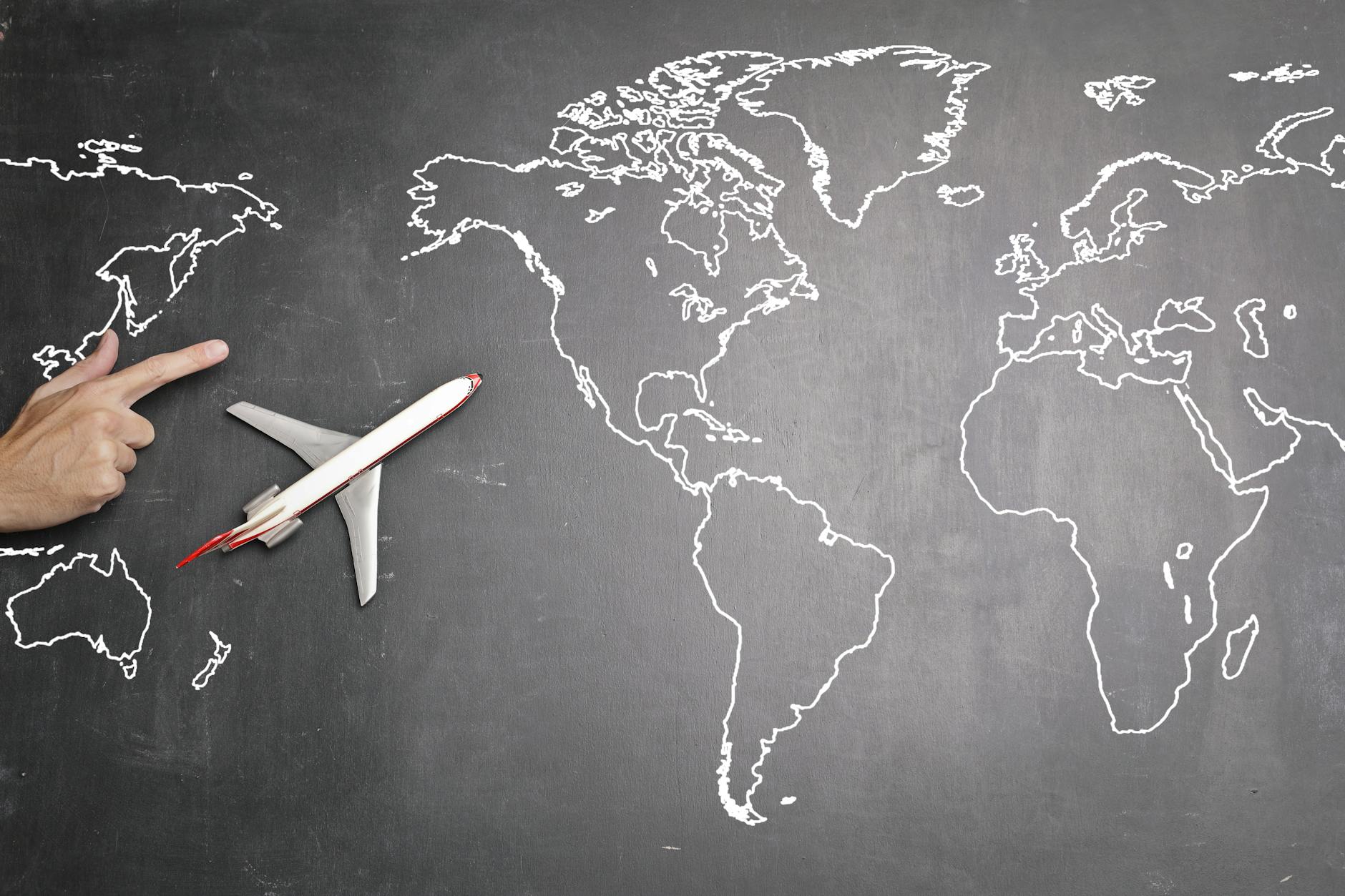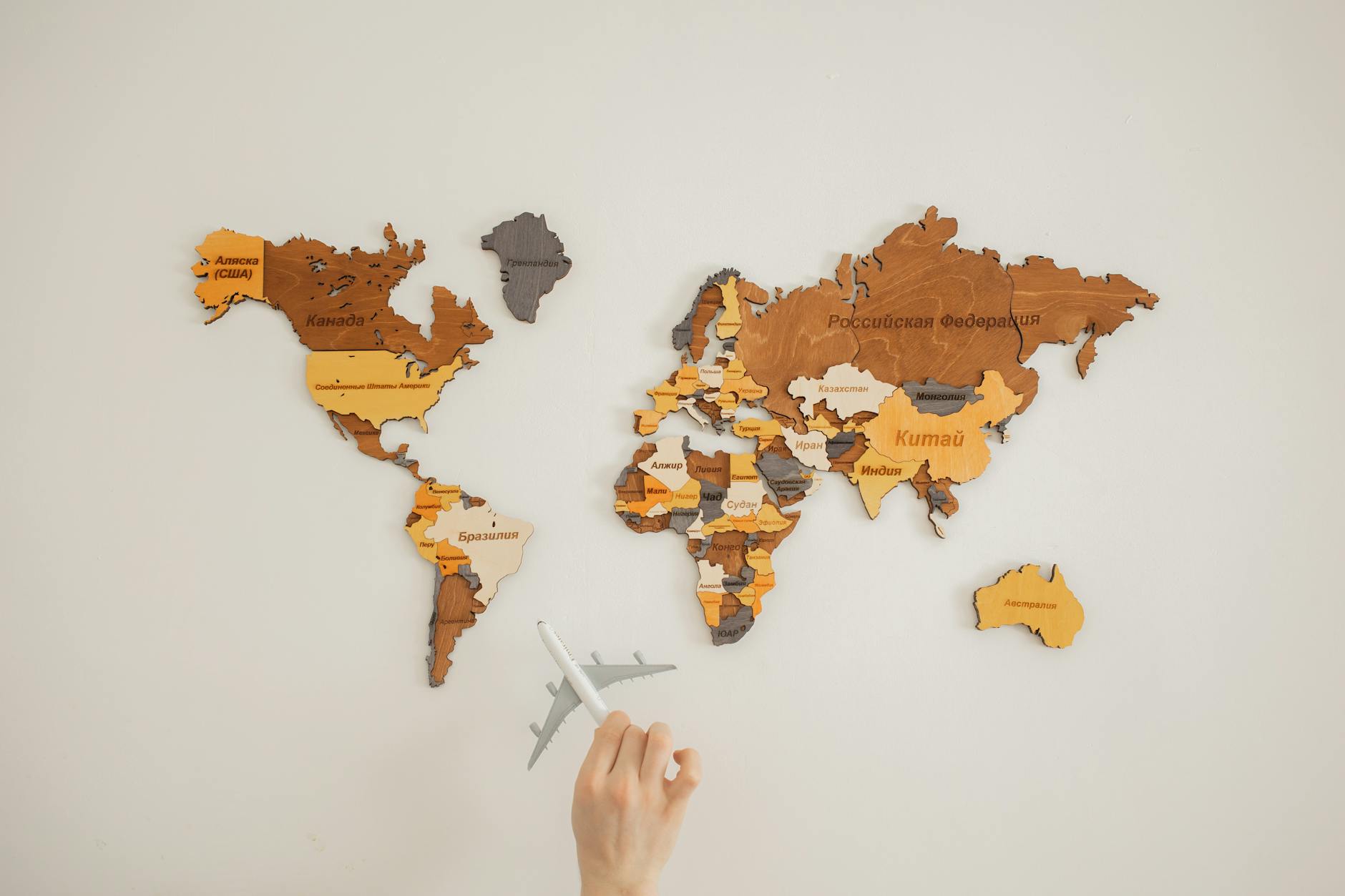Top International Travel Tips for 2024 [Essential Guide]
Planning for international travel can be both thrilling and daunting. Yet, a well-thought-out strategy can transform your journey. Whether you're a seasoned globetrotter or a first-time adventurer, having a few smart tips in your arsenal can make all the difference. From understanding local customs to packing like a pro, every detail counts when you're far from home.
This post offers essential insights to help you navigate the complexities of international travel. Expect advice on keeping your documents safe, maximizing comfort during long flights, and staying connected with loved ones. With the right preparation, you can turn potential travel hiccups into memorable experiences. Ready to travel smarter in 2024? Let's get started.
Pre-Travel Preparations
Getting ready for an international trip can be both exciting and daunting. Taking the time to plan properly can save you from unnecessary stress and help you fully enjoy your journey. Here are some key steps to ensure you're fully prepared for your adventure.
Research Your Destination
Understanding the cultural norms, local laws, and customs of your destination is crucial. This helps you avoid misunderstandings and shows respect for the local people.
- Cultural Sensitivity: Knowing how to interact with locals can make a big difference in your travel experience. For instance, in Japan, it's polite to bow when greeting others, while in many Middle Eastern countries, a handshake is more appropriate. Engage with the culture openly to create meaningful connections.
- Local Laws: Ignorance of the law isn't an excuse. Researching local regulations can prevent you from unintentionally breaking any laws. For example, chewing gum in Singapore's public places is banned and can lead to hefty fines. Understanding local laws is essential to stay out of trouble.
- Customs and Traditions: Respecting local customs can enrich your travel. In many countries, it's important to dress modestly when visiting religious sites. Learn about local traditions to show appreciation for the culture.
Travel Documentation
Ensuring you have the correct travel documentation is vital for a smooth journey. This includes checking the validity of your passport, understanding visa requirements, and securing travel insurance.
 Photo by Andrea Piacquadio
Photo by Andrea Piacquadio
- Passport Validity: Many countries require that your passport be valid for at least six months beyond your planned stay. Check your passport well before your departure date to ensure it's up to date.
- Visa Requirements: Different countries have different visa requirements. Some need you to apply in advance, while others offer visas on arrival. Be aware of visa requirements to avoid any last-minute hassles.
- Travel Insurance: Travel insurance is essential for protecting yourself from unforeseen events such as medical emergencies or trip cancellations. Some countries even require proof of insurance for entry. Find out more about travel insurance and ensure you are covered.
Packing Smart
Packing efficiently can make your trip much more enjoyable, whether you're heading to a tropical beach or a snowy mountain.
- Plan Your Outfits: Consider the activities you'll be doing and the weather at your destination. Pack versatile clothing that can be layered. For example, a lightweight jacket is perfect for cooler evenings even in warmer climates.
- Use Packing Aids: Packing cubes, compression bags, and other organizers can help keep your luggage neat and easy to manage. Pack like a pro by using these tools.
- Carry Essentials in Your Hand Luggage: Important items like medications, travel documents, and a change of clothes should always be in your carry-on in case your checked luggage is delayed or lost.
Being well-prepared before you travel can make all the difference. By planning ahead and organizing your essentials, you can focus on enjoying your adventure rather than stressing over last-minute details.
Best Practices for Booking
Booking your travel can be both exciting and overwhelming. From finding the best flight deals to choosing the right accommodation and transportation, making the right choices can significantly affect your travel experience. Here are some best practices to help you plan your trip efficiently.
Finding the Best Flight Deals
When booking flights, timing is everything. Using comparison sites like Skyscanner or Google Flights can help you find the most competitive prices. These platforms allow you to compare prices across airlines and set alerts for price drops.
- Book in Advance: The general rule of thumb is to book your flights about two to three months in advance for international travel. This window usually offers the best prices.
- Search on Different Days: Prices can vary depending on the day of the week. Typically, flying mid-week can be cheaper than weekend flights.
- Be Flexible with Dates: If your schedule allows, being flexible with your travel dates can help you snag cheaper flights.
- Use Incognito Mode: Some say that airlines track your searches and may increase prices if they see you repeatedly searching for the same route. Using incognito mode might help prevent this.
For more tips on finding the best flight deals, check out this guide to booking flights.
Choosing Accommodation Wisely
Accommodation is more than just a place to sleep. It's about comfort, safety, and proximity to attractions. Here are different types of accommodations to consider and how to choose the best one for your needs:
- Hotels: Ideal for those looking for comfort and amenities. Choose based on location, price, and reviews.
- Hostels: Great for budget travelers and solo adventurers. Hostels offer shared facilities and often have a social atmosphere.
- Vacation Rentals: Sites like Airbnb or Vrbo offer homes and apartments, which can be perfect for families or longer stays.
- Boutique Hotels: These are smaller, unique hotels that offer a more personalized experience.
When choosing accommodations, think about your budget, the kind of experience you're looking for, and what amenities are essential to you. For more guidelines, this business travel guide can be very helpful.
Transportation Options
Once you’ve arrived at your destination, you'll need to get around. Here are the main transportation options to consider:
- Public Transportation: Often the most economical and efficient way to travel within cities. Check out the local bus, tram, or metro systems.
- Car Rentals: Ideal for those wanting to explore at their own pace or if traveling to more remote areas. Be sure to check if your destination requires an International Driving Permit.
- Ride-Sharing Services: Apps like Uber and Lyft can be convenient for short trips around a city.
- Biking: Many cities offer bike rentals, which can be a fun and eco-friendly way to explore.
- Walking: Don’t underestimate the value of exploring on foot. It's free and gives you a great sense of the local culture.
For detailed planning, look at resources like this transportation planning guide.
 Photo by Ksenia Chernaya
Photo by Ksenia Chernaya
During Your Trip
When you're traveling internationally, it's essential to make the most of your trip while staying safe and connected. Here are some tips to help you navigate the challenges of being in a foreign country.
Staying Connected
 Photo by Monstera Production
Photo by Monstera Production
One of the first things you’ll want to do is ensure you stay connected. Here are a few ways to keep your phone and other gadgets online:
- Local SIM Cards: Purchase a local SIM card upon arrival. These are often available at the airport or nearby convenience stores. Websites like NerdWallet provide useful information on where and how to buy them.
- Wi-Fi: Many hotels, cafes, and public areas offer free Wi-Fi. Always look for secure networks to protect your data.
- Global Data Services: Some mobile providers offer international data plans. Services like eSIM can be convenient as they allow you to switch networks without swapping SIM cards. More on this can be found on Easy Planet Travel.
Staying Safe and Secure
Safety is a top priority when traveling. Here’s a quick guide to staying vigilant:
- Keep Your Belongings Secure: Always keep an eye on your belongings. Use anti-theft backpacks, and avoid displaying valuables in public. Check out travel safety tips on Global PSU.
- Be Aware of Your Surroundings: Stay alert in crowded places and follow local advice on safe areas. Simple habits, like not leaving bags unattended, can go a long way in preventing theft.
- Use Hotel Safes: Store important documents, extra cash, and other valuables in hotel safes. Review more tips on Travel Fashion Girl.
Navigating Local Customs and Etiquette
Respecting the local culture not only enhances your experience but also earns you the goodwill of the locals. Here are some tips:
- Learn Local Phrases: Knowing a few basic phrases can help bridge communication gaps. Simple greetings or thank yous go a long way. For a starting point, visit On Call International.
- Understand Cultural Nuances: Be mindful of local customs and traditions. For example, in some cultures, tipping might be considered rude, while it's expected in others. More on this topic can be explored on Connect PLS.
- Dress Appropriately: Respect dress codes, which can vary significantly from one country to another. Researching and dressing appropriately shows respect for the local culture.
These tips should help you stay connected, safe, and respectful as you adventure abroad. Stay tuned for more tips on international travel!
Health and Safety Considerations
When traveling internationally, your health and safety should be a top priority. Here are some essential tips to keep you well-prepared and safe during your adventures abroad.
Vaccinations and Health Insurance
 Photo by RDNE Stock project
Photo by RDNE Stock project
It's crucial to ensure you have all necessary vaccinations before embarking on your journey. Depending on the country you plan to visit, you might need specific vaccines to protect against local diseases. Common travel vaccinations include:
- Hepatitis A and B
- Typhoid
- Yellow Fever
- Rabies
- Japanese Encephalitis
For detailed information, you can check resources like Prioritizing Care for Resource-Limited Travelers.
In addition to vaccinations, having proper health insurance is a must. Regular medical insurance might not cover you abroad, so consider purchasing international travel medical insurance. This ensures you get help if you encounter a medical emergency, need evacuation, or face unexpected healthcare expenses. More details on this topic can be found here.
Emergency Contacts and Local Laws
Knowing who to contact in case of an emergency is vital. Keep a list of emergency contacts, including family members, friends, and your country's embassy. In the event of a crisis, you can quickly get the help you need.
- Embassy/Consulate contacts: Know how to reach your nearest embassy or consulate. This can be crucial if you lose your passport or need legal assistance.
- Local emergency numbers: The emergency number might not be 911. Know the local equivalents.
- Travel insurance helpline: Always have your travel insurance contact details at hand.
Understanding and respecting local laws can prevent a lot of trouble. Every country has different rules and regulations, and what's acceptable at home might not be allowed abroad. Simple actions like chewing gum in Singapore or taking photos in certain places can lead to fines or worse.
For more tips, consider checking resources like International Travel Safety Tips and Check List and Emergency Contacts | Global Cornell.
Keeping these considerations in mind can help ensure a safe and healthy trip, allowing you to focus on enjoying your travel experiences.
Post-Travel Tips
Returning from an international trip can be bittersweet. While you're back to the comforts of home, the memories and stories of your journey linger. Here are some essential post-travel tips to help you reflect on your adventure and share your experiences with others.
Reflect and Document Your Journey
One of the best ways to keep your travel memories alive is by documenting them. Keeping a travel journal or blog can help you preserve the essence of your trip. Writing about your experiences is more than just putting words on paper. It's a way to relive the moments and understand your journey deeply.
 Photo by eberhard grossgasteiger
Photo by eberhard grossgasteiger
Tips for Keeping a Travel Journal:
- Write Daily Entries: Try to jot down your thoughts and feelings every day. Capturing the small details can make your memories more vivid.
- Include Photos and Mementos: Stick pictures, tickets, and other memorabilia in your journal. It's like building a scrapbook of your journey.
- Use Prompts: If you’re stuck on what to write, use prompts such as "What surprised me the most today?" or "A person I met who inspired me."
Keeping a travel journal is a rewarding practice. For some inspiration, check out this comprehensive travel journal guide filled with ideas and tips to enhance your journaling experience.
Sharing Your Experiences
Sharing your travel stories with friends, family, or even strangers can be incredibly fulfilling. Not only does it allow you to relive your experiences, but it also helps you connect with others and might inspire them to travel.
Benefits of Sharing Travel Stories:
- Reliving Memories: Every time you tell your story, you get to experience your adventure all over again.
- Inspiring Others: Your stories can be the spark that encourages others to explore new places.
- Building Connections: Sharing travel experiences can help you connect with fellow travelers, creating a community of like-minded individuals.
In addition to storytelling, sharing tips and insights you've gained can be very helpful to others planning similar trips. A great place to start might be The Importance of Travel Stories, which discusses how sharing your journeys can impact both you and those who listen.
So, next time you return from a trip, take some time to reflect and share your stories. Not only will you keep your memories alive, but you might just inspire someone else to embark on their adventure.
Additional Resources:
- Social Disconnect After Travel
- How to Save Your Travel Photos and Memories
- Why Travelers Share Their Stories
These tips will help you make the most out of your post-travel period, ensuring that your adventure lives on in your writings and stories.
Conclusion
Traveling internationally in 2024 offers countless opportunities for adventure and growth. From staying hydrated and packing smart to respecting local customs and using tech-savvy tools, each tip enhances your journey.
Carefully plan your trip, ensuring all essential documents are ready and your itinerary is well-researched. A well-prepared traveler experiences fewer hassles and more joy.
Ready to embark on your next adventure? Embrace these tips and make your travels memorable. Safe travels!

